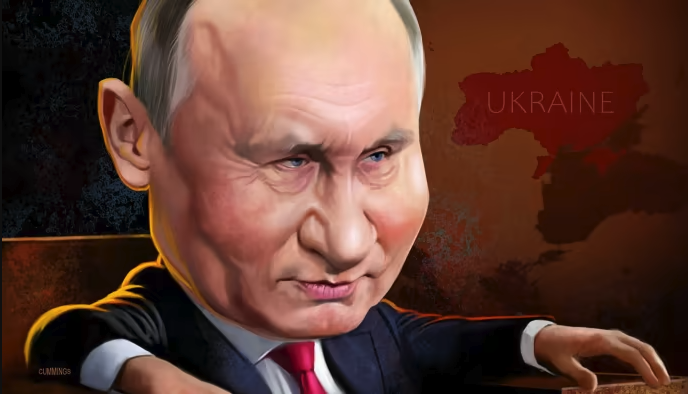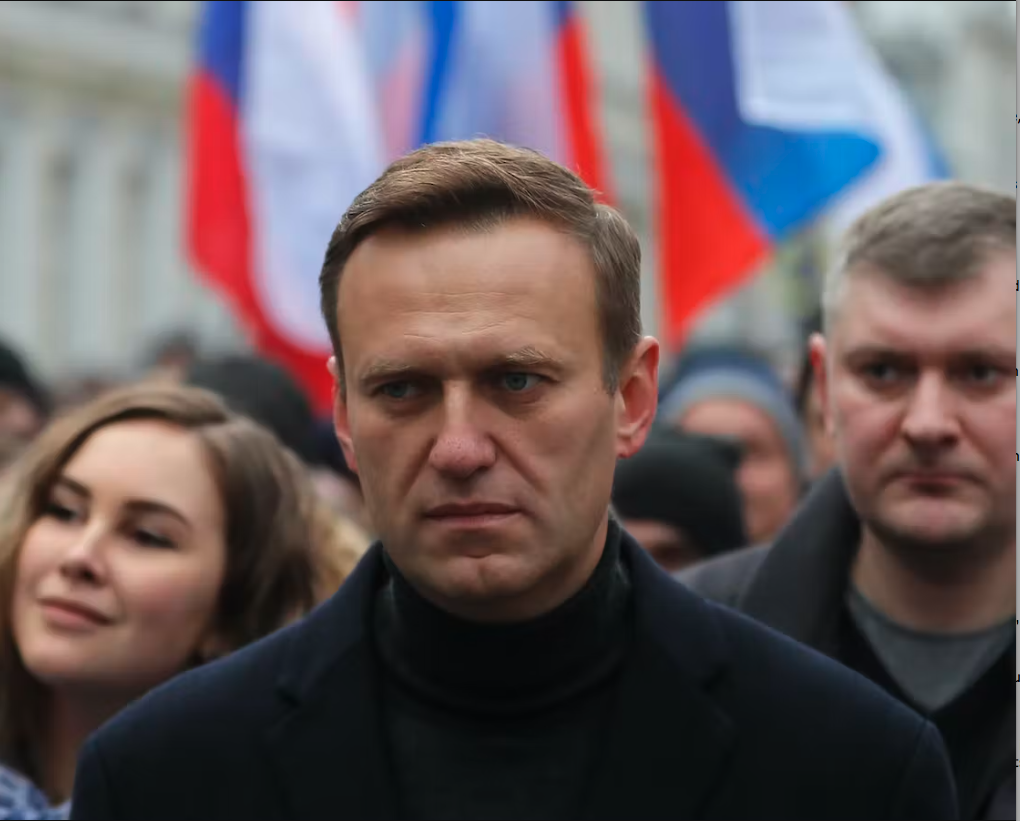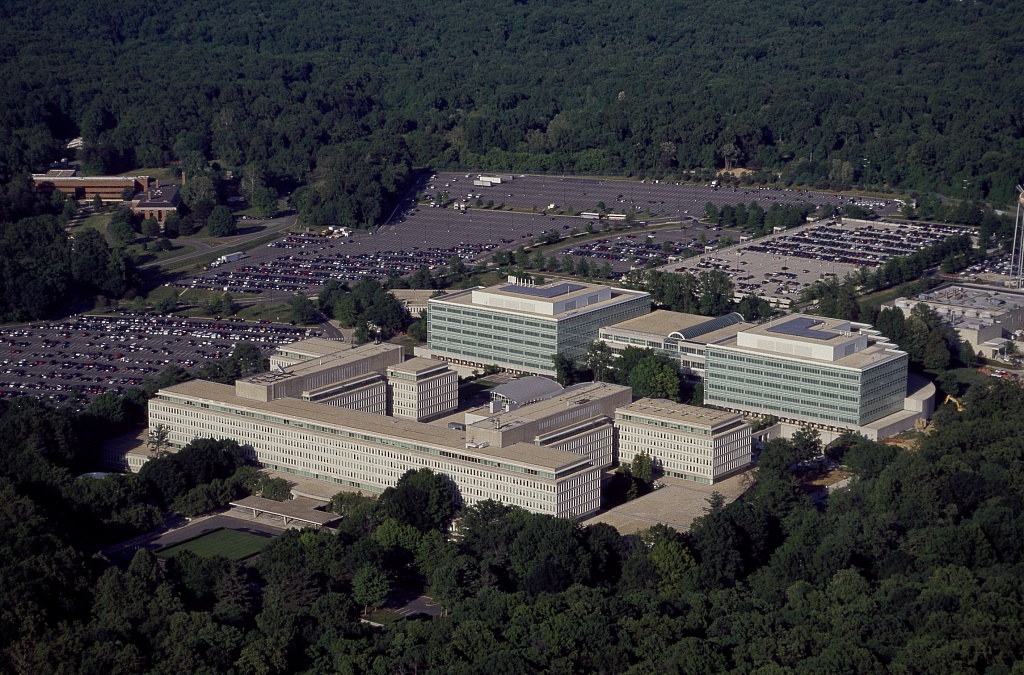By Glynn Wilson –
WASHINGTON, D.C. — If ever there was a need for “regime change” at any time in history, anywhere in the world, surely it would now be time to get rid of Vladimir Putin in Russia.
He’s not only waging an unjust war against the innocent Ukrainian people and causing havoc in the world economy. He’s enemy number one standing in the way of a global fight against climate change due to global warming from burning fossil fuels for energy and transportation, a top national security threat according to the CIA.
As such, he also has to be considered enemy number one at this juncture standing in the way of the future of human survival on planet Earth and beyond. That includes his threats of using nuclear weapons to win his war for power and territory in Ukraine.
Yes, you might agree, but who could replace him and turn the Russian bear in a more democratic direction? That’s easy.
Alexsei Navalny, Russia’s leading dissident and opposition leader, “may be something of a Mandela of our age,” according to New York Times columnist Nicholas Kristof.
“Poisoned, imprisoned, brutalized, Navalny stands unbroken in his cell: still mocking Putin and scathing in his denunciation of the invasion of Ukraine,” he writes. “He is a Kremlin nightmare.”
Navalny ran for president and was winning, until Putin intervened, in part because of his exposés about a $1 billion Putin pleasure palace that infuriated the Russian leader.
“Navalny not only survived assassination attempts, but when sent to the gulag tried to unionize prisoners and guards — plus he has been nominated for a Nobel Peace Prize and is now star of a film that is a finalist for an Oscar.”
His 21-year-old daughter, Dasha Navalnaya, is a junior at Stanford University. While navigating exams and term papers, she is also campaigning for her dad and promoting a documentary about him, “Navalny.” It won the award for best documentary this month at the British Academy Film Awards and is a finalist for an Academy Award for best documentary.
I’ve been conducting a private study of American intelligence agencies and their history of late, and I’m sure they are spending some time thinking about what to do about Putin over in Langley, Virginia these days at the George Bush Center for Intelligence, domestic headquarters of the Central Intelligence Agency (CIA).
By law and the agency’s charter, it’s not supposed to spy on citizens in the United States. All that changed, however, after Sept. 11, 2001, and in 2008 when Congress voted to exempt the telecommunications giant AT&T from lawsuits under the reauthorized Foreign Intelligence Surveillance Act (FISA) after The New York Times finally published a story it held until after the election in 2004 proving that the NSA and the company had been illegally spying on Americans for years.
Related: Can the Constitution Survive Politics Without Principle?
The CIA doesn’t routinely send out press releases or answer reporters’ questions quite like the Federal Bureau of Investigation, however, so we don’t know what they are thinking over there.
“The company” as it is sometimes called has a long history of botching the job, at least those we find out about, like failing to assassinate Fidel Castro in Cuba and the failed Bay of Pigs invasion to fight Communism in the Western Hemisphere. There was also the Iran-Contra scandal and mining the harbors to fight Communists in Nicaragua.
Regime change has been used in the past as justification for getting rid of dictators in places like Chile and Panama, not to mention Saddam Hussein in Iraq in a war that was started based on bad intel about his alleged possession of Weapons of Mass Destruction (WMDs).
I would be curious to know just how accurate a recent British series set in London after World War II is in dramatizing the early days of the Office of Strategic Services (OSS) as it was about to be disbanded by Harry Truman.
In the “Traitors” six part series, character actor Michael Stuhlbarg plays Thomas Rowe, a senior American agent and handler for the OSS, who recruits a young, naive yet intelligent upper-class civil servant to spy on Russians infiltrating the highest levels of the British government after the war. This is apparently based on reality, as the Socialist Party won election after the war and ousted the Conservative Party government of Prime Minister Winston Churchill, who is still regarded as a hero for his handling of the war.
In the series, Emma Appleton plays Feef Symonds, who gets hired in the Cabinet Office and spies for the OSS.
At one point in the series, the Rowe character addresses the “Big Five,” moneyed interests in the U.S. making decisions about the spy agency, and demands that if they want to “protect democracy and capitalism,” a larger budget will be required.
It was President Harry S. Truman who authorized the creation of the Central Intelligence Group under the direction of a Director of Central Intelligence by presidential directive on January 22, 1946, which was transformed into the Central Intelligence Agency by implementation of the National Security Act of 1947.
Interestingly, I found out last summer that many of the agents for OSS who engaged in spying during WWII were trained in Catoctin Mountain Park in Maryland, now home to the presidential retreat of Camp David.
One Year of War in Ukraine
The FBI does send out press releases, however, and this week the agency put one out documenting some of the efforts to aid Ukraine in the war with Russia
“Since Russia’s unprovoked invasion of Ukraine one year ago…, the FBI has successfully disrupted criminal, cyber, and hostile intelligence activities from Russia that endanger Ukraine, our partners, and American citizens,” the agency says. “The FBI has surged personnel and technical resources in field offices across the country and our legal attachés overseas to protect the Ukrainian people and infrastructure, U.S. assets, and anyone threatened by the Russian government.”
And it says “We aren’t alone.”
The FBI is joined by partners in the fight in the private sector and the KleptoCapture Task Force, launched by Attorney General Merrick Garland in March, 2022, to hold corrupt Russian oligarchs accountable.
“It has been one year since Russia launched an unprovoked invasion of its neighbor, but the FBI has been working with our Ukrainian partners for years to battle Russian aggression there — and we aren’t going anywhere,” FBI Director Christopher Wray said in making the announcement. “The FBI’s commitment to Ukraine remains unwavering, and we will continue to stand against Russia at home and abroad.”
Over the past year, the document says, the FBI has successfully identified over $500 million in assets belonging to Russian oligarchs and others who unlawfully supported the Russian regime, leading to warrants for their seizure. This includes two luxury yachts, the Tango, a $90 million yacht owned by sanctioned oligarch Viktor Vekselberg and located in Spain at the time, and the Amadea, a $300 million mega-yacht owned by Suleiman Kerimov and recovered from Fiji.
The agency has identified eight real properties totaling approximately $100 million in value associated with Russian oligarchs and agents, including two condominiums in Beverly Hills, California, three luxury properties in New York and Washington, D.C., an apartment on Park Avenue in New York City, an estate in Southampton, New York, an apartment on Fisher Island, Florida, and a penthouse apartment also on Fisher Island.
It has identified four airplanes used to aid Putin’s regime, including a $45 million Boeing 737-7EM owned by Russian energy company PJSC LUKOIL, two airplanes worth over $400 million owned by Russian oligarch Roman Abramovich, and a $90 million Airbus A319-100 owned by sanctioned Russian oligarch Andrei Skoch.
It has investigated over 10 individuals and corporate entities accused of sanctions evasion, export control violations, money laundering and other crimes, leading to their indictment.
The agency investigated sanctioned oligarch Konstantin Malofeyev and Russian member of parliament Alexander Babakov for sanctions evasion and other related crimes, as well as U.S. television producer Jack Hanick for his role in assisting sanctioned Russian oligarch Konstantin Malofeyev with his television network.
It investigated U.K. businessman Graham Bonham-Carter for allegedly violating U.S. sanctions on behalf of Russian oligarch Oleg Vladimirovich Deripaska – and wire fraud in connection with Deripaska’s U.S.-based properties and artwork.
It investigated sanctioned oligarch Oleg Deripaska and three co-conspirators for conspiracy to evade sanctions and making false statements, and sanctioned former Ukrainian legislator Andrii Derkach for conspiracy to violate sanctions, bank fraud conspiracy, money laundering conspiracy, and four counts of money laundering in connection with the purchase and maintenance of two U.S.-based properties.
It investigated four individuals and two companies with violating U.S. export laws by attempting to smuggle a high-precision, computer-controlled grinding machine (“jig grinder”) to Russia for likely use in its defense program, and Master Yachts, U.K. citizen Richard Masters, and Russian/Swiss national Vladislov Osipov for sanctions-evasion acts tied to the yacht Tango, attributed to sanctioned oligarch Viktor Vekselberg.
Using intelligence and data analytics to prevent a broad range of national security threats stemming from Russia’s destabilizing activities in Ukraine, it identified and stopped illegal transfers of weapons and civil-military, dual-use technologies — some of which have been recovered on battlefields in Ukraine — from illicit procurement networks illegally trafficking them to Russia.
The agency claims to have proactively disrupted a global botnet controlled by the Russian military intelligence agency (GRU), similar to those used by the Russian government to attack Ukrainian targets during the invasion.
And it has maintained robust collaboration with Legat Kyiv to obtain developing intelligence on cyber activity related to the war, and to provide Ukrainian partners with actionable intelligence.
It has provided dozens of cyber-related notifications to the Ukrainian government and others to promote infrastructure and data security work, resulting in the concrete actions taken by U.S. based service providers push as mitigation of DDOS attacks targeting various Ukrainian government agencies, along with suspension of social media, mobile application, and other communication accounts used to geo-locate, track, and broadcast the movement of Ukrainian military positions.
It helped identify the compromise of social media accounts belonging to members of the Ukrainian military, and social media channels spreading disinformation related to the war.
The agency says it is proactively identifying and mitigating cyber threats to U.S. interests.
As potential threats to critical infrastructure and private sector agencies were identified, the FBI proactively engaged those organizations throughout the country, in both classified and unclassified settings, to provide technical and contextual intelligence to better protect U.S. equities and national security.
It also mobilized agents and other personnel to investigate war crimes and other atrocities in Ukraine, and partnered with the Ukrainian Prosecutor General’s Office to boost collaboration in the investigation and prosecution of crimes committed by Russia in Ukraine.
The FBI partnered with Ukraine’s National Police of Ukraine and State Border Guard Services to provide training and mentoring, including on tactical and criminal investigative assistance and forensics and evidence collection — foundational skills for war crimes.
“The FBI will continue to use our unique expertise and authorities to strengthen the resilience of our partner, Ukraine,” it says, and “protect U.S. national security and inflict severe consequences on Russia and its enablers.”
Of course the behind the scenes battle between Virginia and Maryland is still being waged over the location of the new FBI headquarters. Reportedly the Hoover building in D.C. is falling apart.
Related: F.B.I. Headquarters Move Could be a Legacy Project for Greenbelt’s Congressman, Steny Hoyer
___
If you support truth in reporting with no paywall, and fearless writing with no popup ads or sponsored content, consider making a contribution today with GoFundMe or Patreon or PayPal.

















Personal reflections, I view Russia as the USA and the Ukraine as Vietnam-the similarities exist. The civilized world laments as to how terrible this tragedy is but is unwilling to do anything except sanction a proxy war among the global elite, in this manner, they don’t get their hands dirty. It was easy for us to discount foreigners of a different race and culture, this is what makes this aggression different-we are now experiencing how easy it is to discount those similar to us. Something is wrong here.